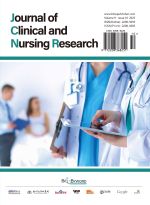Abstract
Objective: To explore the effects of respiratory exercise rehabilitation nursing on self-care ability, lung function, and quality of life in patients with chronic obstructive pulmonary disease (COPD). Methods: A total of 88 patients with COPD admitted from February 2024 to February 2025 were selected and randomly divided into an experimental group and a control group, with 44 patients in each group. The control group received routine nursing, while the experimental group received respiratory exercise rehabilitation nursing on the basis of routine nursing. After 12 weeks of intervention, the self-care ability, lung function, and quality of life of the two groups were compared. Results: After the intervention, the scores of each dimension and the total score of self-care ability in the experimental group were significantly higher than those in the control group (p < 0.001). The improvement of lung function indicators such as FEV₁, FVC, and FEV₁/FVC in the experimental group was better than that in the control group (p < 0.001). The scores of each dimension and the total score of quality of life in the experimental group were significantly lower than those in the control group (p < 0.001). Conclusion: Respiratory exercise rehabilitation nursing can effectively improve the self-care ability, lung function, and quality of life of patients with COPD, which is worthy of clinical promotion and application.
References
Ren Q, 2021, The Effect of Aerobic Exercise Combined with Respiratory Rehabilitation Nursing on Respiratory Function and Quality of Life in Elderly Patients with Mild to Moderate COPD. Harbin Medical Journal, 41(2): 123–124.
Wang Z, 2024, The Impact of Pulmonary Rehabilitation on Exercise Tolerance and Quality of Life in Patients with Chronic Obstructive Pulmonary Disease. Shanxi Medical Journal, 53(15): 1192–1195.
Li S, Wang J, Liu Y, 2019, The Effect of Respiratory Exercise Rehabilitation Therapy on Lung Function and Quality of Life in Patients with Stable COPD. Practical Integration of Traditional Chinese and Western Medicine, 19(3): 13–14.
Zhuang X, Wei M, Liu C, et al., 2024, The Effect of Respiratory Exercise Rehabilitation Therapy on Lung Function, Exercise Endurance, and Quality of Life in Patients with Stable Chronic Obstructive Pulmonary Disease. Primary Medical Forum, 28(31): 48–50, 56.
Chen Y, 2020, The Impact of Rehabilitation Nursing Self-Management on Lung Function and Quality of Life in Patients with Chronic Obstructive Pulmonary Disease. Guide to Chinese Medicine, 18(27): 188–189.
Tang Y, Yuan L, 2020, The Effect of Respiratory Muscle Function Training Combined with Personalized Health Education on Patients with Chronic Obstructive Pulmonary Disease in the Recovery Phase. Chinese Medicine and Pharmacology, 10(24): 143–147.
